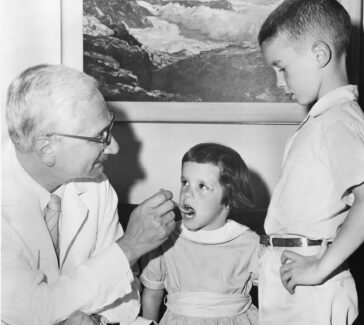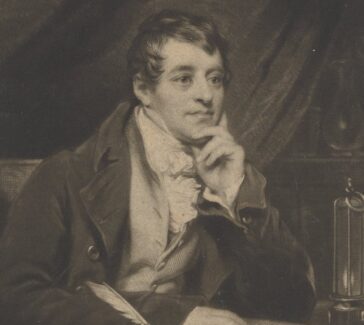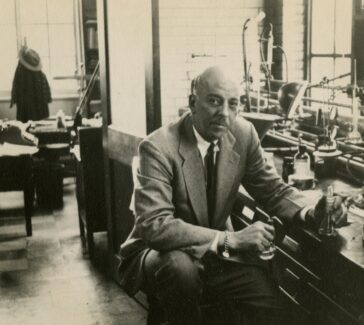Carl Ferdinand Cori and Gerty Theresa Cori
The Coris identified the cyclical process that muscle cells use to make and store energy. Understanding this process of sugar metabolism is particularly important for treating diabetes.
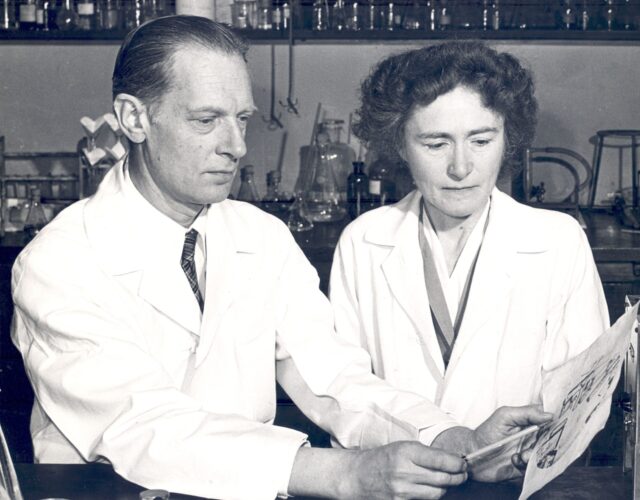
Animals, including humans, are constantly on the go. Where do they get the energy? A husband-and-wife team, Carl and Gerty Cori, identified the cyclical process that muscle cells use to make and store energy, receiving the Nobel Prize in Physiology or Medicine for their work. Understanding this process of sugar metabolism—called the Cori cycle—is particularly important for treating diabetes, a condition in which the cycle is disrupted.
Carl Ferdinand Cori (1896–1984) and Gerty Theresa Cori (1896–1957) were great scientific collaborators. The two spent their lives researching carbohydrates and the chemical reactions that the body uses to break down certain carbohydrates and synthesize others. They were especially interested in the class of carbohydrates known as sugars. Among other remarkable feats they discovered “the Cori ester,” a breakdown product of glycogen (the form in which sugar is stored in muscles), and they were able to reverse this reaction in a test tube, forming glycogen again.
Two Prague Natives
Gerty Cori, née Radnitz, was born in Prague (then part of the Austro-Hungarian Empire), the daughter of a Jewish businessman. She was home-schooled until the age of 10, when she began attending a girls’ preparatory school. In those days in Europe girls’ schools weren’t nearly as challenging as those for boys, and they often paid more attention to teaching girls how to be proper young ladies than to nurturing their minds.
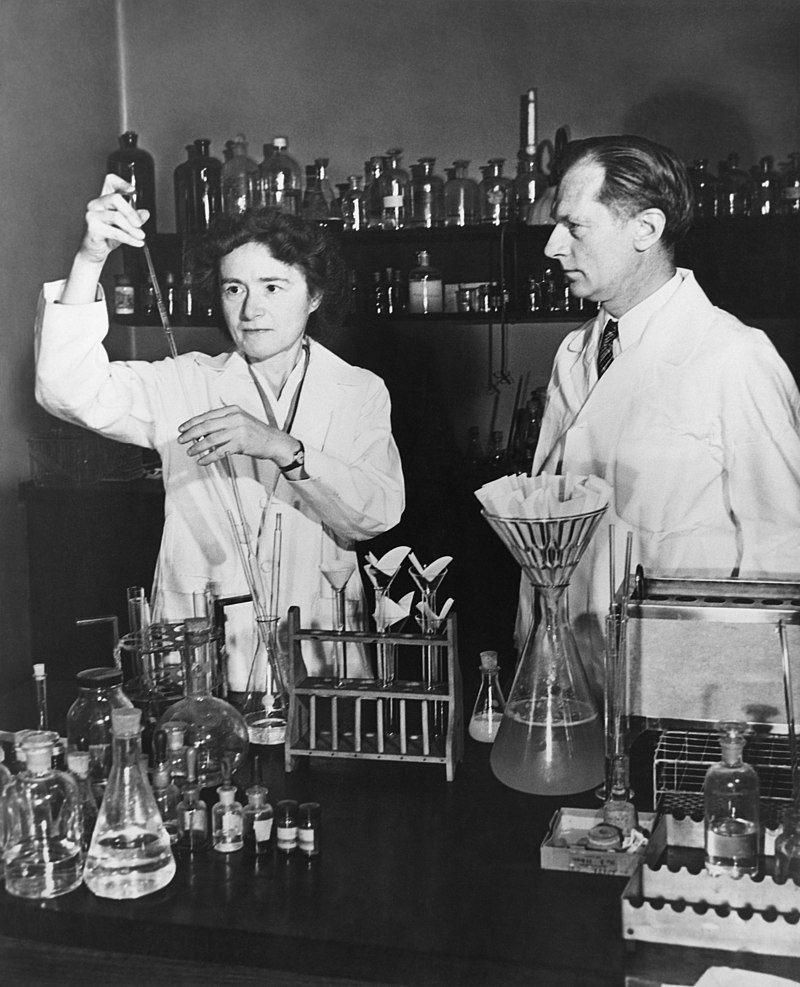
But young Gerty became interested in math and science, thanks to her uncle, who was a professor of pediatric medicine at Charles-Ferdinand University in Prague. After finishing high school at 16, she wanted to study at a university, but admission required math, science, and Latin, and her schooling had not offered much instruction in those areas. So she entered a college-prep school and finished its curriculum in only two years.
Gerty enrolled in medical school at the German University of Prague in 1914. In her first semester she, a talkative extrovert, met the quiet and reserved Carl Cori. Though their personalities differed, the two shared the same career ambition: to become medical researchers. They also shared hobbies, including hiking, mountain climbing, and gardening.
Carl Cori was also born in Prague, into a Roman Catholic family that had produced generations of scientists. He grew up and was educated in traditional schools in Trieste (now in Italy, but then part of the Austro-Hungarian Empire), where his father was head of the Marine Biological Station.
Gerty and Carl began collaborating on research while they were still students. Unfortunately World War I soon forced Carl to interrupt his studies to serve in the Austrian army, but he still managed to graduate on time. After they both graduated with their medical degrees in 1920, they were married.
After World War I: Vienna, then America
The Coris moved to Vienna, where Gerty worked in a children’s hospital and Carl in university laboratories. In the aftermath of the war, times were hard for all Europeans and food was scarce. Gerty was given dietary supplements at her hospital but refused them, feeling that the patients needed them more than she did. She soon developed xerophthalmia, a disease related to vitamin deficiency. This, combined with rising anti-Semitism in Austria, prompted the Coris to decide to emigrate.
Carl left for the United States in 1922, having accepted a job at the State Institute for the Study of Malignant Diseases in Buffalo, New York. Gerty stayed behind in Vienna at the children’s hospital, waiting until she could find work in America. Finally, six months later, she got a job at the same institute as Carl and joined him in Buffalo. In 1928 the Coris became U.S. citizens.
Washington University and the Nobel Prize
The two stayed in Buffalo until 1931, when Carl left to become a professor at Washington University in St. Louis, Missouri. Gerty was hired too, as a research associate, despite her equivalent degrees and comparable research experience.
It was not until 1943 that she was promoted to a faculty position. She became full professor in 1947, the same year that she and Carl were awarded the Nobel Prize in Physiology or Medicine “for their discovery of the course of the catalytic conversion of glycogen.” Gerty was the first American woman to win a Nobel Prize.
Around this time Gerty came down with myelosclerosis, a disease of the bone marrow. Eventually the disease claimed her life. She died in 1957 at the age of 61. Carl remarried in 1960 and, after retiring from Washington University in 1966, became a visiting professor of biological chemistry at Harvard Medical School. He remained actively engaged in research at Massachusetts General Hospital until the last year of his life. Together, the Coris had one son.

